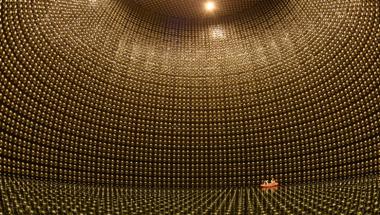
Dr Stefano Vergani
Postdoctoral Research Associate
Research interests
- Physics
Biography
Dr Stefano Vergani is a Postdoctoral Research Associate in the Experimental Particle & Astroparticle Physics group within the Department of Physics of King’s College London. He has a background in neutrino physics and liquid argon detectors. He works on testing new quantum sensors, with potential applications in particle detection, life sciences, and quantum computing. He also focuses on advanced AI and quantum AI algorithms to recognise complex patterns in particle physics. He experiments with quantum machine learning algorithms and deploys machine learning models on edge devices, such as the Edge TPU and FPGAs.
Dr Vergani started working for King's College London in 2025. He was previously a Research Fellow at University College London, where he worked as a detector physicist for the DUNE collaboration. He completed his PhD in physics at the University of Cambridge, focusing on the intersection between AI and particle physics. Before that, he received an MSc from ETH Zurich and a BSc from the University of Milan. He completed his MSc thesis at the Massachusetts Institute of Technology, testing photon detection systems in liquid argon.
Research
- Quantum sensors
- Quantum machine learning
- Edge AI devices
- Neutrino physics and dark matter
Dr Vergani's work focuses on new AI and quantum technologies applied to particle physics, as well as detector physics R&D. His interests include quantum machine learning, AI edge devices, photon detection systems, and liquid argon and xenon technologies. His main goals are to enable particle physicists to obtain ambitious scientific results by investigating new technologies. He also works on AI safety and the implications of new disruptive AI technologies for society.
Publications
LArTPC hit-based topology classification with quantum machine learning and symmetry
Explaining the MiniBooNE excess through a mixed model of neutrino oscillation and decay
A First Application of Collaborative Learning In Particle Physics
Research

Experimental Particle & Astroparticle Physics
The aim of the EPAP group is to address some of the major open questions in our understanding of matter through the study of the nature of fundamental particles
Research

Experimental Particle & Astroparticle Physics
The aim of the EPAP group is to address some of the major open questions in our understanding of matter through the study of the nature of fundamental particles
